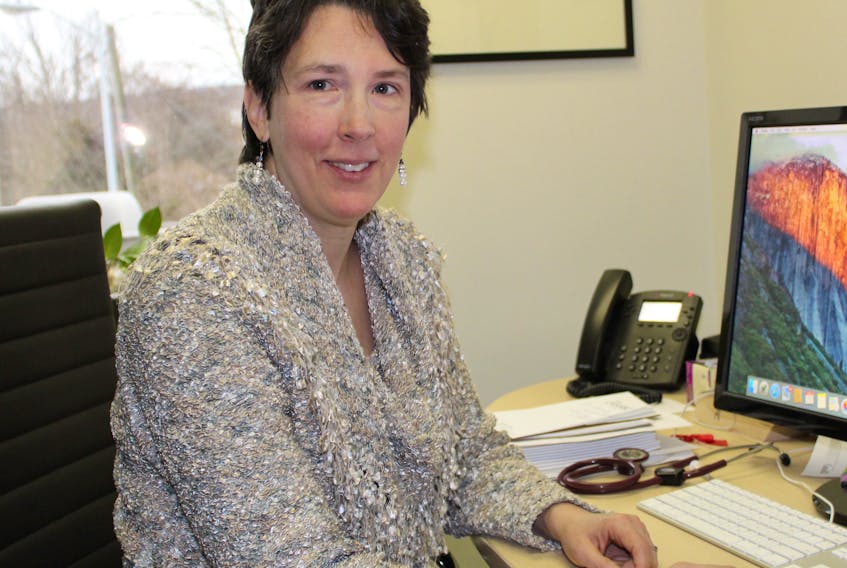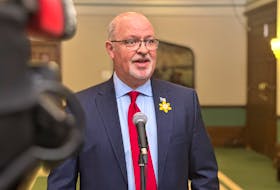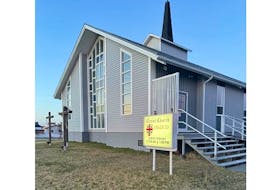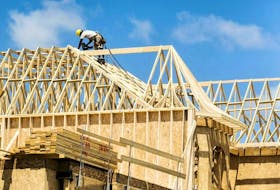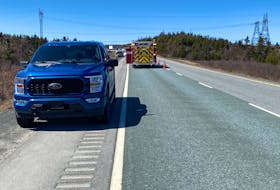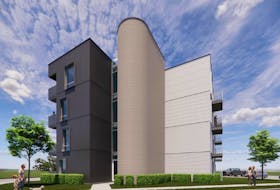ST. JOHN’S, N.L. – With recreational cannabis use in full swing, a St. John’s doctor has some tips to use it safely this New Year’s Eve.
Dr. Alia Norman practises at Cannabinoid Medical Clinic in Churchill Square, a referral-based clinic. Norman works mostly with patients who have chronic pain or cancer.
Her day-to-day work involves prescribing medical cannabis, but now that it’s recreationally legal she has two main messages for the public.

One — cannabis is not safe for everybody.
Two — it is potentially addictive and users experience withdrawal symptoms when they quit.
“There’s a lot of misinformation out there,” she said.
“I want to walk the line between that and the other extreme – the sort of ‘reefer madness’ attitude that it’s ‘terribly addictive’ or it will cause ‘dramatic personality changes’, all of that. I’m seeing a lot more good than I expected – I’m also seeing some real negative effects, and the internet is not going to tell you that.”
Can help get patients off multiple drugs
Among the more positive effects Norman has witnessed is the fact that she’s able to help patients get off multiple drugs by replacing them with one cannabinoid product.
An uncommon but notable negative effect she’s witnessed is cannabis-triggered psychosis.
“A lot of people will tell me they’ve used cannabis and it makes them paranoid – what they really mean is it made them socially anxious. But you can get out and out paranoia, where you really believe everybody is out to get you, and very rarely that can persist after you get sober.
“When people talk about fear of young people using cannabis, they’re not just talking about the question of does it affect motivation, does it affect grades, but this rare thing called psychosis.”
Norman said the most common time for psychosis to emerge – with and without drugs – is between the ages of 16 and 25.
Norman used to work as a radiation oncologist and in palliative care. From there, she developed an interest in pain and symptom management, which brought her to working with medical cannabis a couple of years ago.
She said patients have become more interested in referrals to her clinic in the years leading up to recreational legalization.
“Since legalization, the biggest change has been supply. So, Newfoundland sold out in two days. That impacted the medical side of it as well. People have always come to my clinic having tried it on their own, but that is happening very, very frequently now.”
The popularity of the drug may mean people will be more likely to encounter it at parties ringing in the new year – the first New Year’s Eve in which it’s legal.
Tips for safe use
Norman offers the following nine tips to use cannabis safely heading into 2019 and any time:
- Every form of cannabis use poses risks to health. The only way to avoid those risks is to avoid using cannabis. If you decide to use cannabis, the following tips will help you use it more safely.
- People who have major medical problems should only use cannabis under doctor’s recommendations. “My conversation with a cancer patient or a patient who is taking 10 other drugs is very, very different from my conversation with a 24-year-old who’s wondering whether they’re using too much,” said Norman.
- If you’re offering guests cannabis products, let them know what would be a reasonable dose and caution not to consume more than a certain amount. Realize that the amount of time it takes for edibles to take effect varies from person to person. A high-fat meal also increases absorption. Norman advises using oils to make homemade edibles with a controlled amount of THC. Aim for 2.5 mg of THC per brownie – one brownie would have a light effect, most new users would feel a comfortable effect with two brownies, and four would be a strong 10 mg dose. Clearly label edibles indicating how much is in them.
- Keep cannabis products locked away out of the reach of children. “Kids find stuff,” said Norman. “Putting it up in the cupboard doesn’t count.”
- Do not drive or operate machinery during or after using cannabis. The effects of cannabis typically last at least six hours, but could be longer, depending on the person and the product used. Norman cautions that cannabis could affect your driving the next day.
- “Boil, don’t barbeque,” said Norman. In other words, avoid smoking cannabis. Norman said she treated lung cancer for years and smoking cannabis products is problematic. “When you light it on fire, the products of combustion tend to be pretty toxic,” she said. Norman said vaporizers offer the same rapid onset, and oral sprays offer long-lasting relief.
- Norman suggests being mindful of the ‘munchies’. For a healthier experience, sit next to healthy snacks rather than a bowl of chips.
- Cannabis is not for everyone. About 10 per cent of users will experience anxiety and social withdrawal, said Norman. She said cannabis that contains more than five per cent CBD and less than 13 per cent THC is less likely to have that effect. People with a personal or family history of psychosis or substance use problems, and pregnant women should not use cannabis at all.
- Don’t use synthetic cannabis products because most are stronger and more dangerous and can lead to severe health problems.
Twitter: @juanitamercer_

